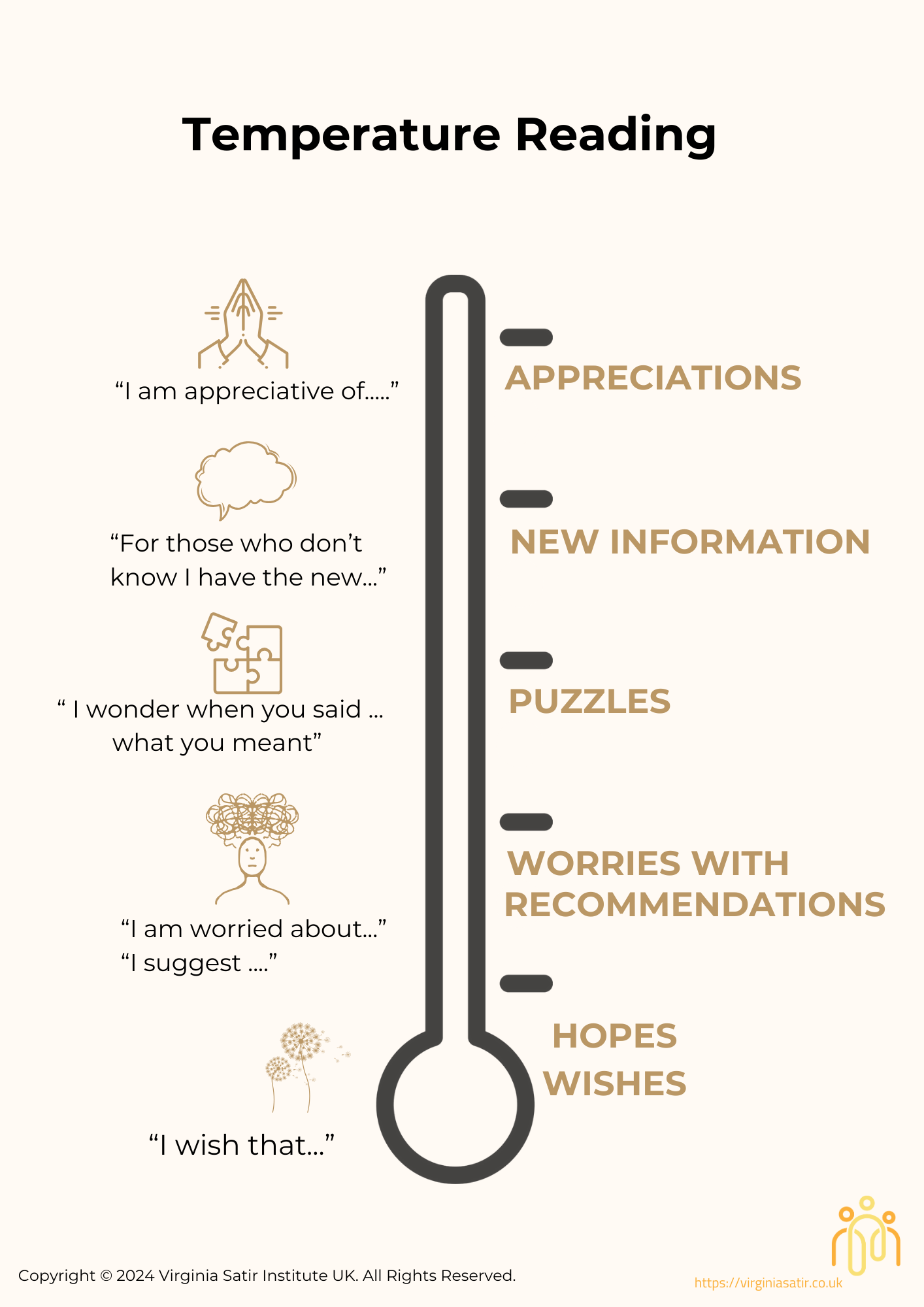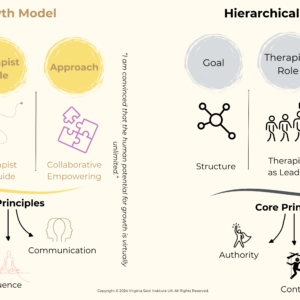Description
Virginia Satir’s “Temperature Reading” is a remarkable tool for improving communication within relationships, particularly within families and teams. It’s a structured way of checking in with each other, promoting open and honest communication, and addressing issues constructively. The process of Temperature Reading comprises five distinct steps:
1. Appreciations
Purpose: To express gratitude or appreciation for each other.
Verbatim Example:
- Family Member: “I appreciate how you helped me with my project yesterday. It meant a lot to me.”
- Team Member: “I’m grateful for your support during the meeting. Your insights really helped clarify our objectives.”
2. New Information
Purpose: To share any new information relevant to the family or team.
- Parent: “I want to let you all know that I’ll be working late this Thursday.”
- Manager: “There’s an update on the project timeline I need everyone to be aware of.”
3. Puzzles
Purpose: To express anything that is unclear or confusing, without expecting an immediate solution.
- Teenager: “I’m puzzled about why we can’t have later curfews on weekends.”
- Employee: “I’m unclear about the new client’s requirements. Can we discuss this further?”
4. Complaints with Recommendations
Purpose: To voice complaints or issues, but importantly, to also offer a constructive recommendation for resolving them.
- Spouse: “I feel frustrated when you don’t help with household chores. Could we create a chore schedule?”
- Colleague: “I’ve noticed our meetings often run over time, which affects my other commitments. Could we try sticking more closely to the agenda?“
5. Wishes, Hopes, and Dreams
Purpose: To share aspirations, hopes, or dreams, which helps deepen understanding and connection.
- Child: “I hope one day to go to college and study marine biology.”
- Team Leader: “My dream for our team is to not just meet our targets but to exceed them in a way that boosts everyone’s professional growth.”






